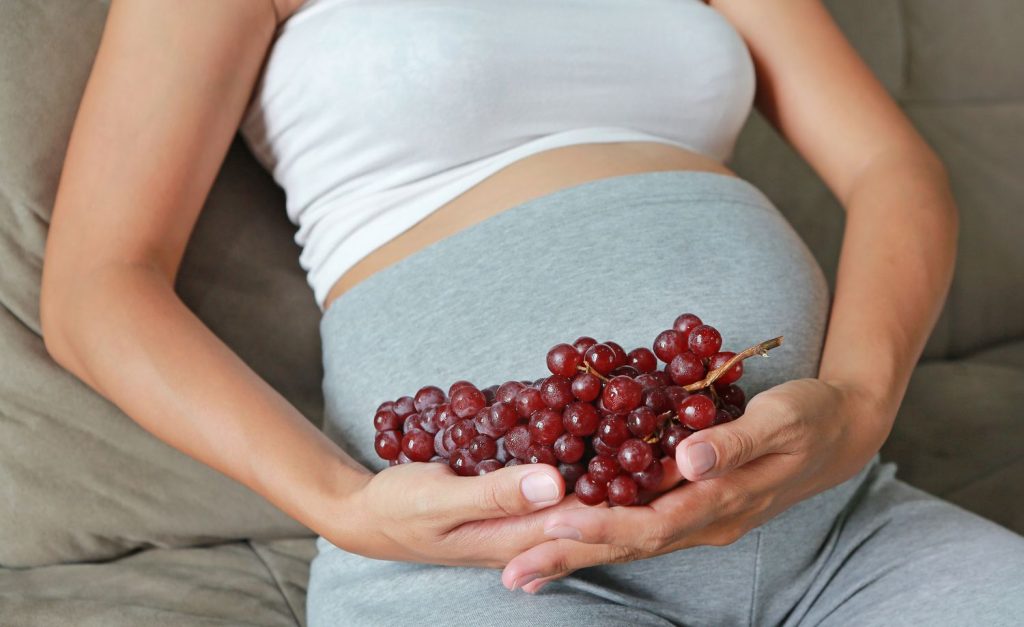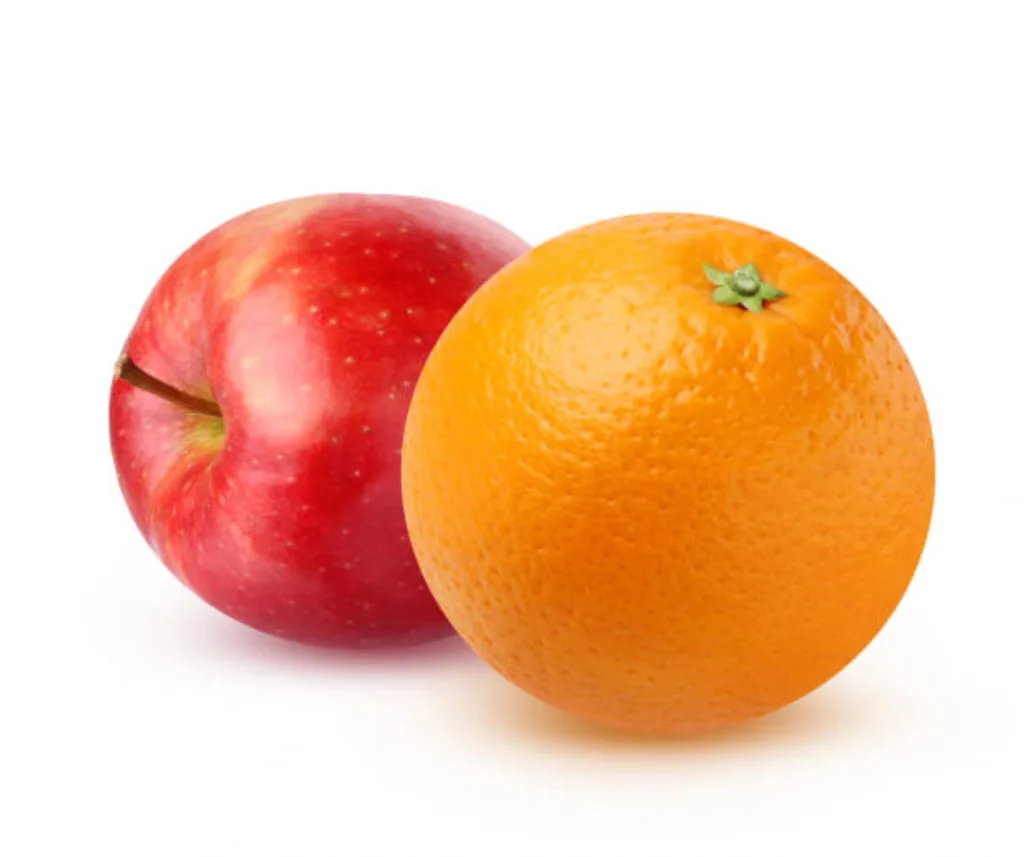Grape cravings while pregnant frequently rank high on the list for many expectant mothers.
One may wonder whether it is safe to indulge in this juicy fruit during this special time.
This article will delve into the nutritional benefits that grapes offer, highlighting the essential vitamins and minerals they contain, as well as any potential risks associated with their consumption, including concerns about pesticides.
For those seeking alternatives, we will also discuss other fruits that provide similar nutrients.
Let’s explore how to satisfy those grape cravings safely!
Grapes and Pregnancy

When discussing pregnancy, the foods one selects can greatly influence both personal health and the development of the baby. Grapes, known for their vibrant color and sweet flavor, may be an enjoyable option for pregnant women seeking to satisfy their cravings.
These fruits are rich in nutrients and provide health benefits that complement a well-balanced pregnancy diet. However, it is essential to consider dietary restrictions, hydration needs, and food safety, particularly concerning pesticide residue.
By understanding the role grapes can play in nutrition during pregnancy, individuals can make informed choices that support their maternal health.
Further reading: Pregnancy and Olive Cravings: Here’s the Reason & Best Tips!
Is it Safe to Eat Grapes During Pregnancy?
When considering whether it is safe to consume grapes during pregnancy, it is important to take into account various factors that influence nutrition and cravings. Grapes can be a safe food choice, as long as one adheres to proper food safety guidelines to minimize risks such as food poisoning or pesticide residue. Their natural sugars make them an enjoyable snack that contributes positively to overall dietary balance and hydration.
Moderation is crucial when adding grapes to the diet; overindulgence can lead to excessive sugar intake, which may affect gestational health. Pregnant individuals should always wash grapes thoroughly to eliminate any potential contaminants, ensuring they are making a healthy choice. By prioritizing these food safety practices, one can reap the nutritional benefits of grapes, which include essential vitamins and antioxidants.
Balancing these delightful fruits with other healthy options not only satisfies cravings but also supports overall wellness during this important period.
Nutritional Benefits of Grapes for Pregnant Women

Grapes are more than just a tasty fruit; they offer a wealth of nutritional benefits for pregnant women, filled with essential vitamins and minerals. Their high antioxidant content is crucial for supporting both fetal development and maternal health.
Furthermore, grapes are a good source of dietary fiber, which aids digestion and can help ease common pregnancy issues like constipation. By including grapes in your pregnancy diet, you can enhance your overall wellness and enjoy a satisfying range of food options.
Important Vitamins and Minerals
Grapes offer an impressive range of vitamins and minerals that are essential for the health of pregnant women, including vitamin C, vitamin K, and a healthy dose of antioxidants. These nutrients not only bolster the immune system but also help meet the increased energy needs that come with pregnancy. By adding grapes to your diet, you can enjoy a nutritious snack while ensuring a balanced intake of crucial vitamins and minerals.
The folate found in grapes is particularly important as it helps reduce the risk of neural tube defects, making them a wise choice for expectant mothers. Additionally, the potassium in these delightful fruits plays a key role in maintaining healthy blood pressure levels, which is crucial during pregnancy. The dietary fiber in grapes aids digestion and can help alleviate common pregnancy-related issues such as constipation, promoting overall comfort for the mother.
Therefore, including grapes as part of a diverse and nutritious diet is not only a delicious option but also a significant step toward ensuring both maternal wellness and healthy fetal development.
Potential Risks of Eating Grapes During Pregnancy

Grapes offer a wide range of health benefits, but it is essential to consider potential risks associated with consuming them during pregnancy. Factors such as pesticide residue and the possibility of allergies can present challenges for some expectant mothers.
Furthermore, it is important to consume grapes in moderation to help manage cravings and prevent complications like gestational diabetes, thereby ensuring a safe and enjoyable dietary experience.
Concerns About Pesticides and Contamination
One of the primary concerns surrounding grapes and pregnancy is the potential for pesticide residue and contamination, which can significantly impact food safety. Opting for organic grapes can help mitigate these risks, ensuring safer consumption while still allowing one to enjoy the health benefits of this delicious fruit.
It is essential for pregnant women to stay informed and follow food safety guidelines to protect both their health and that of their baby.
Conventional grape farming often involves the use of harsh chemicals that can remain on the skin of the fruit, posing risks not only during pregnancy but also for anyone consuming contaminated produce.
Choosing organic grapes, which are grown without synthetic pesticides and harmful fertilizers, provides a more reliable option. When selecting organic grapes, it is advisable to look for certifications and labels that confirm their organic status.
Additionally, washing grapes thoroughly before consumption can further reduce any remaining residues, reinforcing food safety practices that lead to safer dietary choices.
Alternatives to Eating Grapes While Pregnant

If one is seeking alternatives to enjoy during pregnancy, there are several fruits that offer similar nutritional benefits to grapes, helping to satisfy cravings.
Options such as berries, apples, and oranges provide essential vitamins and minerals while contributing to a balanced diet.
Exploring these alternatives can be an enjoyable way to enhance fruit cravings and ensure a variety of flavors in a pregnancy diet.
Further reading: Craving Cereal During Pregnancy? Here’s Why and Benefits
Other Fruits with Similar Nutritional Benefits
Many fruits offer similar nutritional benefits to grapes, providing a rich source of vitamins and antioxidants that are particularly important during pregnancy. Fruits such as strawberries, kiwi, and mango not only have delicious flavors but also deliver essential nutrients that can help alleviate cravings and support overall well-being.
Additionally, blueberries and raspberries emerge as excellent choices, as they are packed with fiber and vitamin C, both of which are vital for immune support. Pears contribute hydration along with a generous amount of dietary fiber, while oranges provide a refreshing burst of citrus flavor and an extra dose of vitamins.
By incorporating a variety of these fruits into the diet, expectant mothers can enjoy a delightful mix of flavors alongside a broad spectrum of health benefits. This approach helps them meet their nutritional needs while also indulging their sweet cravings in a wholesome manner.
How to Satisfy Grape Cravings During Pregnancy

Satisfying grape cravings during pregnancy can be accomplished in various healthy and safe ways that appeal to your palate. You might consider enjoying fresh grapes, freezing them for a cool snack, or incorporating them into a fruit salad.
There are many delightful options to explore. By ensuring that these choices are made in moderation, you can indulge your cravings while still maintaining a balanced diet throughout your pregnancy journey.
Healthy and Safe Ways to Indulge in Grapes
Indulging in grapes can be a delightful and nutritious experience when approached with mindful intention. Choosing from various grape varieties, such as red, green, or black, not only diversifies your palate but also offers a range of health benefits. Pairing grapes with cheese or yogurt enhances the flavor while adding protein and calcium, resulting in a satisfying and healthy snack.
These vibrant fruits can also be combined with nuts, providing a delightful crunch and healthy fats that help keep cravings at bay. For an extra flavor boost, consider drizzling them with a touch of honey or adding a sprinkle of cinnamon. This approach can satisfy your sweet tooth without relying on processed sugars.
For a refreshing twist, blending grapes into smoothies or freezing them for a cool snack can elevate hydration levels and serve as a wholesome alternative to sugary treats. Emphasizing a holistic approach to health, pairing grapes with dark chocolate can also enhance antioxidant intake, offering a guilt-free pleasure that nourishes both body and mind.
Frequently Asked Questions
Is it safe to eat grapes during pregnancy?
Yes, it is generally safe to eat grapes while pregnant. However, it is important to consume them in moderation and make sure they are thoroughly washed before eating.
Can grapes cause harm to my unborn baby?
No, grapes are not known to cause harm to the unborn baby. In fact, they are a good source of nutrients and antioxidants which can benefit both the mother and baby.
Are there any concerns with eating too many grapes during pregnancy?
Eating too many grapes during pregnancy can lead to an increase in blood sugar levels, as they are high in natural sugars. It is important to limit your intake and opt for other fruits and vegetables as well.
What are the benefits of eating grapes while pregnant?
Grapes are a good source of essential vitamins and minerals, including vitamin C, potassium, and folate. They also contain antioxidants which can help boost the immune system and protect against certain diseases.
Can pregnant women eat all types of grapes?
It is recommended to avoid consuming unripe or uncooked grapes during pregnancy as they may contain bacteria or pesticides. Stick to eating fully ripe and properly washed grapes to minimize any potential risks.




